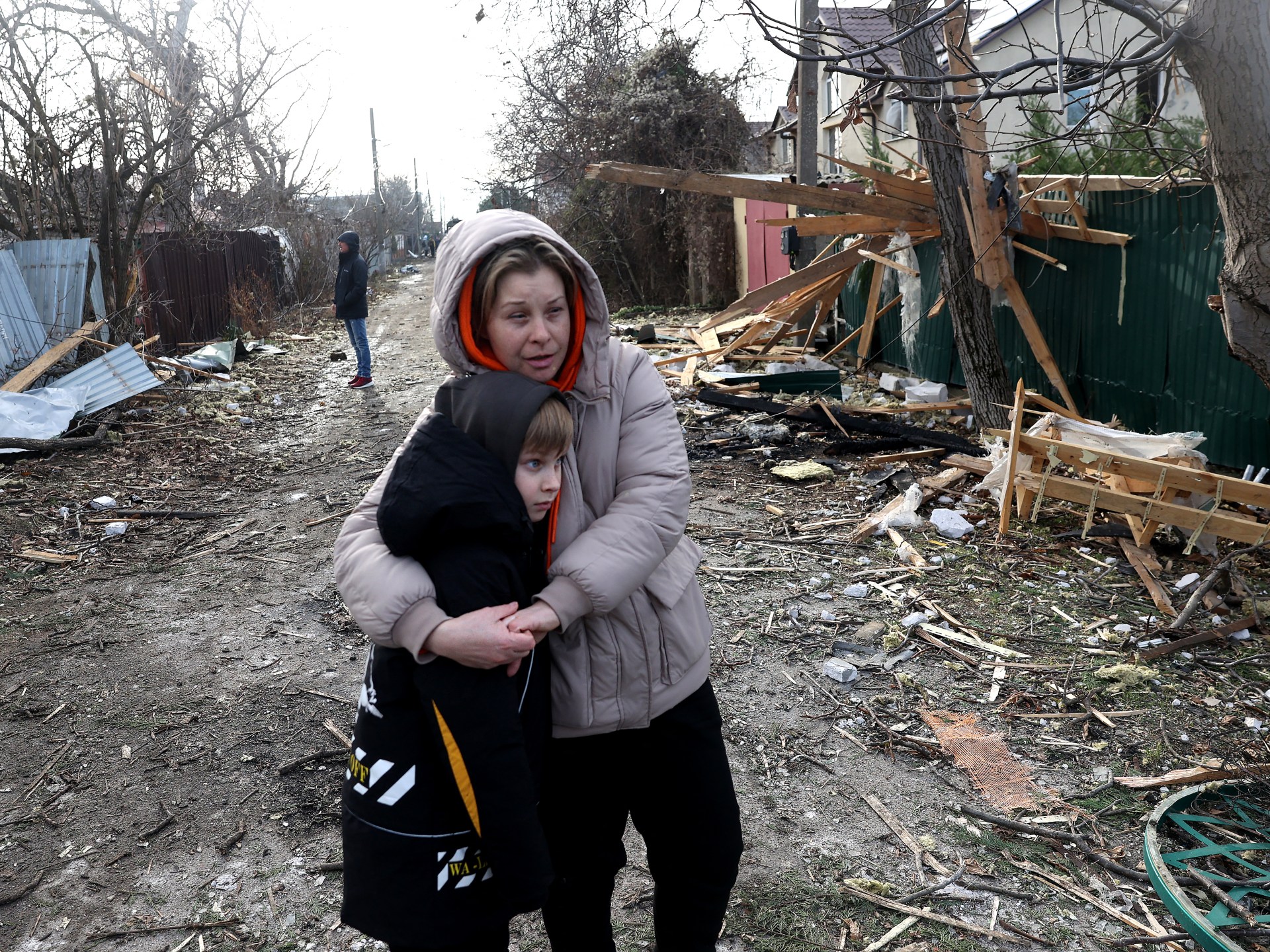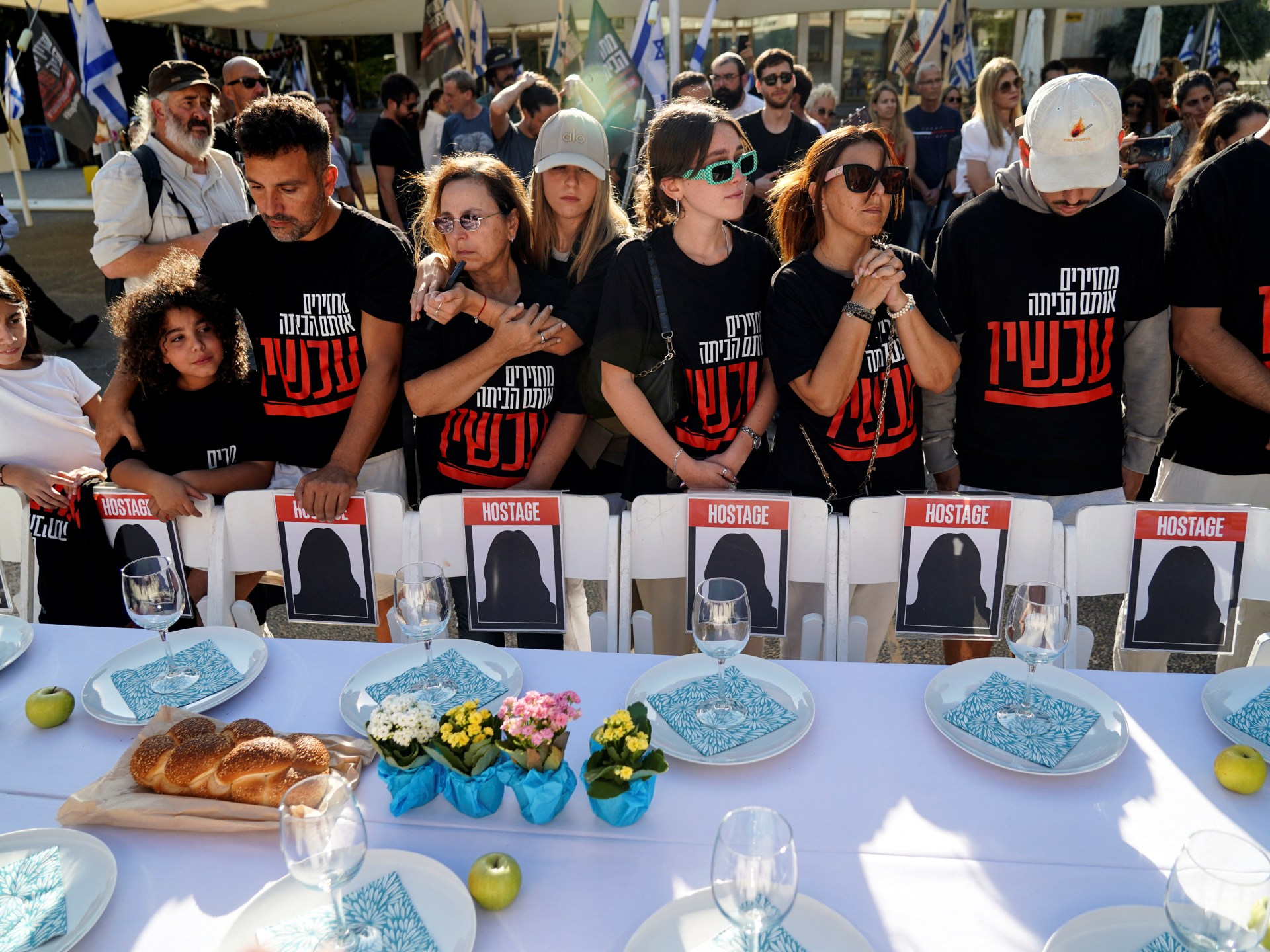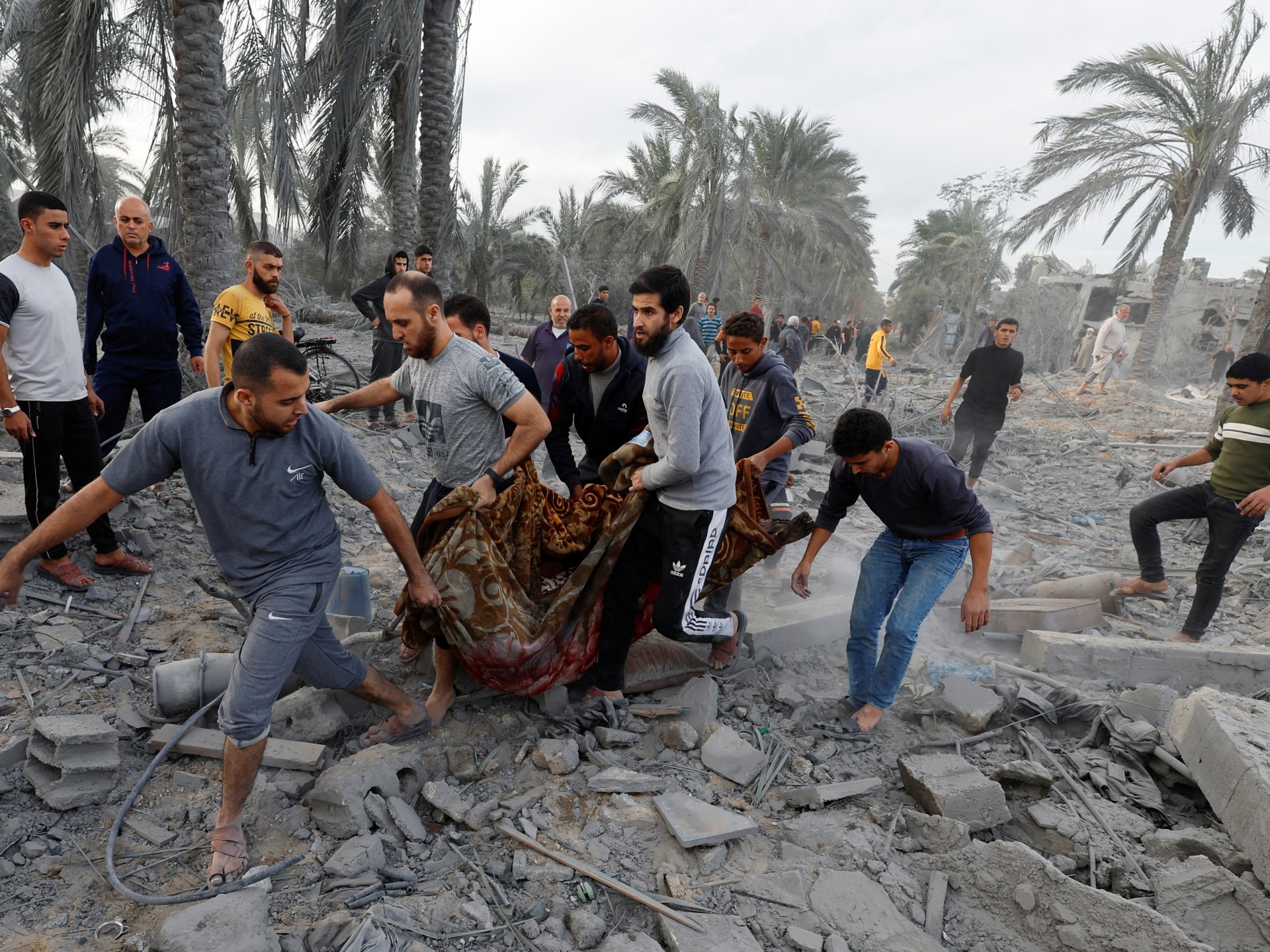
Paris, France – French-Palestinian activist and lawyer Rima Hassan, a left-wing candidate upcoming elections to the European Parliamentis the subject of political and media scrutiny in France as Israel’s war against Gaza continues to rage.
Hassan was born stateless in a Palestinian refugee camp in Syria in April 1992 and came to France with her family at the age of nine. At the age of 18, she was granted French citizenship and completed a master's degree in international law. She wrote her thesis on apartheid in South Africa and Israel; Groups such as Amnesty International and Experts | have long accused Israel of apartheid.
Hassan founded the Observatory of Refugee Camps and the Action Palestine France collective in 2019 after October 7, when the Palestinian group Hamas led an incursion into southern Israel that dramatically escalated the historic conflict.
After killing 1,139 people and taking more than 200 prisoner in early October, Israeli bombings in the Gaza Strip, the Palestinian enclave ruled by Hamas, have killed more than 36,400 Palestinians.
Hassan is currently running for the left-wing party La France insoumise (LFI) in the upcoming European elections and has come under criticism for her party's stance on the Gaza conflict.
LFI called for a ceasefire and condemned both Israel and Hamas. But after October 7, Mathilde Panot, president of the Left Party, described the Hamas attack as an “armed offensive by Palestinian forces” – a remark that earned her a police summons for alleged incitement to “terrorism”. Hassan herself was asked to explain her use of a Palestinian slogan: “From the river to the sea“; ultimately no charges were filed.
Al Jazeera interviewed Hassan about France and the European community's response to the war in Gaza, her personal experiences as a Palestinian politician in France and the upcoming European Parliament elections.
Al Jazeera: You recently claimed that “Israel is worse than Russia” when it comes to complying with international law, arguing that while Europe was quick to take sides with Ukraine and condemn Russia, the same cannot be said for the war in the Middle East. What is your assessment of the overarching European position on the Israel-Palestine conflict?
Rima Hassan: The response of France and the European Union to the Palestinian issue has been inadequate and has failed to uphold the EU's proclaimed values of peace, freedom, democracy, the rule of law and human rights. The EU lacks a unified policy on this issue, reflecting deep divisions within European institutions, between countries and between governments and their citizens.
In stark contrast, after the Russian invasion on February 24, 2022, the EU showed unanimous support for Ukraine, providing aid and military support and imposing sanctions against Russia.
Despite violating more international resolutions than any other state and committing acts documented as apartheid, Israel continues to enjoy impunity. Israel's occupation and colonization of the Palestinian territories has continued for over 50 years, and Gaza has been under an illegal blockade since 2006. Nevertheless, it is a constant struggle, especially in Western countries, to enforce sanctions against Israel.
Al Jazeera: What do you think of the recent European efforts Palestinian Statehood, and what other measures would you like to see from France and Europe?
Hassan: Winning the narrative battle is crucial for Europe to make political and diplomatic progress on the Palestinian issue. Europeans need to be convinced that this is a European issue for several reasons. Sykes-Picot Agreement Britain and France were bound by colonial mandates and the region was divided. The partition of Palestine that led to the creation of Israel must be seen as an annexation plan because the Palestinians were not consulted and the plan was adopted by a largely Western, colonial international community to the exclusion of the global South. And because Israel was founded to counter European anti-Semitism and the Holocaust.
However, the establishment of the State of Israel led to an ethnic cleansing of the Palestinians, in which 800,000 Palestinians have been displaced and 532 villages destroyed since 1948 – a process that is still ongoing.
To counter Israel's colonization plans, Europe should recognize Palestine as a state, impose economic sanctions by suspending the EU-Israel Association Agreement, enforce an arms export embargo for human rights violations, and impose diplomatic and political sanctions against Israel similar to those against the apartheid regime in South Africa until international law is upheld.
These measures can be implemented by individual states and serve as guidelines for the EU's common foreign policy. The upcoming European elections are of historic importance in this respect.
Al Jazeera: How would you characterise France’s response to the war in Gaza so far?
Hassan: The reactions of Europe and France have been hasty, divisive and complicit in Israeli crimes that go beyond the current Gaza conflict. The UN has documented over 120 companies, mostly Western, involved in the settlements. No European country has sanctioned Israel for its documented colonization and occupation of Palestinian territories. Israel is seen as a Western outpost in the East, historically and commemoratively linked to the EU.
The West's establishment of Israel in historic Palestine in response to European anti-Semitism led to the expulsion of Palestinians, a process that Westerners familiar with colonialism had to accept. Many Western countries, including France, have not yet fully come to terms with their colonial past, as evidenced by France's reluctance to confront its history in Algeria.
Al Jazeera: In the run-up to the European elections, you have received death threats and have also been the subject of a police investigation. Why do you think you are facing these problems?
Hassan: In France, my candidacy for the European elections has been subjected to considerable political and legal pressure. I have been threatened, insulted and subjected to anti-Palestinian racism. My Palestinian origins are often denied and some of my speeches have been censored. I have filed eight complaints and initiated procedures over the course of my three-month campaign to ensure that my freedom of expression is respected so that I can give my lectures and speeches.
Palestinians who express their political views face intense scrutiny and backlash in Europe, particularly in France and Germany. For example, the complaint against me for “excusing terrorism” was filed by the European Jewish Organization (OJE).
This process appears to be used primarily to silence those who speak out on Palestinian issues and criticize the Israeli regime. While these challenges are demanding, they pale in comparison to the struggles Palestinians are going through on the ground, underscoring the importance of remaining vigilant and engaged.
Al Jazeera: How did you feel when you witnessed the pro-Palestinian student protests at universities in the US, UK and France?
Hassan: Student protests play a crucial role in the current situation and indicate widespread societal concern about the Gaza war. These demonstrations, predominantly led by students from elite universities, underscore the importance of the Palestinian cause for future decision-makers.
It is crucial that citizens and politicians like me stand in solidarity with these students and support their courage in the face of severe repression, including disciplinary action, police detention and violence. Their courage stands in stark contrast to the perceived cowardice of our societies.
Al Jazeera: What do you hope to achieve if you win the European elections?
Hassan: Political engagement is always about balancing two things: timing and opportunity. For me, this is the right moment to take action on long-standing issues. The urgency of the Palestinian issue and the ongoing atrocities requires immediate action from all of us.
Furthermore, the rise of the far right, which spreads hatred and rejects displaced people and immigrants, underscores the need to advocate for international refugee law – an area in which I specialize.
This issue is closely linked to human rights and international law and requires investment in Europe to promote a progressive, solidarity-based and humanist Europe, aware of its global responsibilities.
Joining the LFI offered me the perfect opportunity to join a party whose programme and common challenges on the European stage resonate with me.
This interview has been lightly edited for clarity and brevity.






Recent Comments